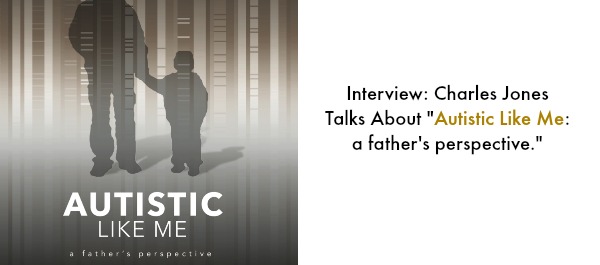Autistic Like Me (ALM) explores the unbridled and unfiltered emotions that fathers experience while raising their autistic children. It also shows the world that autism transcends race, ethnicity, social class, economics, and religion.
The making of ALM has been a labor of love for Charles “CJ” Jones. His only son Malik was diagnosed with autism when he was two and a half years old. Parenting Malik, who is now 10, has been a journey for Charles. It was intriguing to listen to Charles explain the therapeutic process he went through as he made this documentary. He remembers the days when he felt the urge to explain Malik’s diagnosis and behavior out of shame and embarrassment. Those emotions are now replaced with pride, understanding, and the need to plug in with his son to learn more about him.
The filming of ALM took place during a weekend retreat that was facilitated by clinical psychologist, Dr. Naseef. Charles recalls the avalanche of emotions that the dads experienced once they arrived and the bond they formed. As we await the premiere of Autistic Like Me, I got the opportunity to speak with Charles about the film and got some great insight about a perspective that is not often explored.
BMWK: How did the idea for Autistic Like Me develop?
Charles: I worked in production and was looking for a meaningful subject to use to direct my first documentary. I had worked on others and contributed but this was going to be the first that I directed. A friend of mine had planted the seed over lunch while we were catching up on family and current activities after having not seen each other for many years.
BMWK: What are your thoughts on how autism is portrayed in the media today and what will set your film apart from other autism-related documentaries?
Charles: Autistic Like Me is not necessarily about autism – it is really about the effect of autism on family – particularly dads. That’s what sets it apart. There is nothing specifically addressing the issues that many fathers are faced with. It’s what led me to do it. There isn’t a man’s voice in the arena of family support.
BMWK: Tell me about your son Malik. How is he doing now? How does he feel about your film?
Charles: Malik is doing great. He’s a smart kid. He has social challenges but he’s getting there. Our struggle for Malik is getting his school to recognize his gifts. My wife and I both believe they sell him short. We’re working on addressing that now. As for the film, he loves it! My son is a ham!! He thinks he’s going to be a star! Lol!! Seriously, he doesn’t really think about it unless it’s on while I am working on it or I’m talking about it. He’s so used to the project now.
BMWK: Describe the emotional evolution that you experienced as a father during the making of this film.
Charles: Before I started the film, I was in a dark place. I wasn’t pleasant to be around. Once the concept became a reality and I had to focus on the work, I wasn’t really conscious of my issues anymore because I was listening to other men and also researching a lot of the issues. I was kind of removed from my own struggles. Once we got in those groups during the filming, I used the groups just like the other dads did. It was genuine for me and it helped me purge a lot of unhealthy thoughts and feelings. I was able to get past a lot of what was holding me back. I started to heal and accept my son and the condition. The eye opener for me was a film – I was invited to the premiere for “Wretches & Jabberers.” It changed everything about how I looked at my son. I slowed everything down and I became more patient and I started to understand him more.


The NYC screening will be at Fordham University’s Lincoln Center campus on November 19th. It will be in the evening but waiting for an exact time. Just got this update yesterday.
Update: The premiere date was changed to December 4th. Doors open at 6p and the film begins at 6:45. Learn more at the Autistic Like Me FB page.